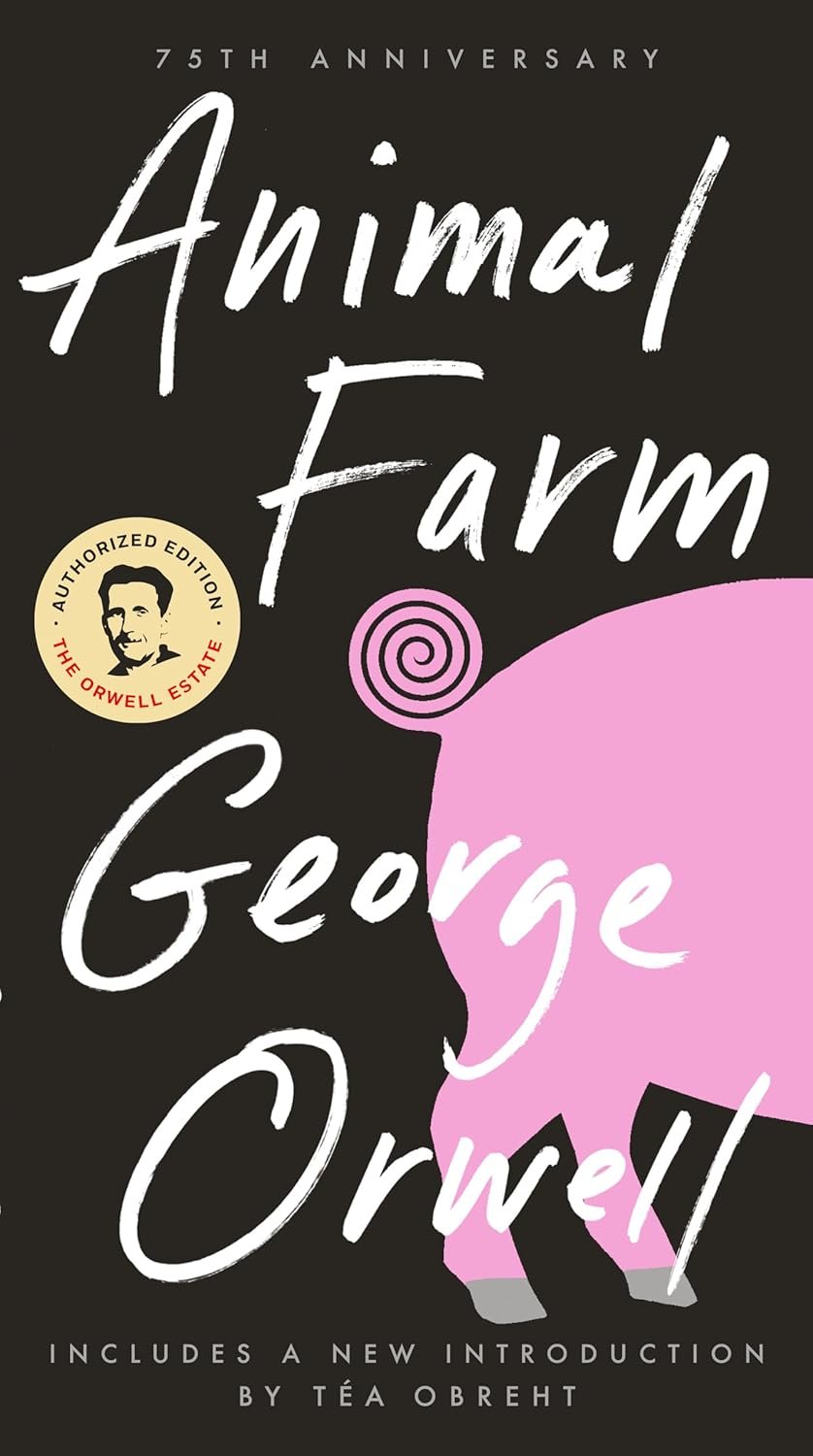Reflections on Animal Farm: 75th Anniversary Edition
George Orwell’s Animal Farm has been on my literary radar for years, and as I took a moment to delve into the 75th Anniversary Edition, I found myself reflecting on the timeless nature of its message. This allegorical masterpiece is not just a story about a farm; it’s a sharp critique of power and corruption that resonates perhaps more now than ever. With a new introduction by Téa Obreht, this edition adds fresh insights while preserving the original’s biting satire.
The plot, deceptively simple, sees the overworked and underappreciated animals of Manor Farm uprising against their ruthless human owner, Mr. Jones. Inspired by dreams of equality and freedom, they establish their own set of ideals and rules that herald a new dawn of hope. However, as the ambitious pigs ascend to leadership, the narrative spirals into a disheartening reminder of how easily nobility can morph into tyranny. The famous slogan “All animals are equal, but some animals are more equal than others” has become iconic, and for good reason; it crystallizes the hypocrisy of those in power while serving as a stark warning against blind allegiance.
Orwell’s writing style is disarmingly straightforward, an inviting voice that leads you into the depths of the fable’s dark undercurrents. The pacing quickens with each chapter, mirroring the frenzy of ideals devolving into chaos—a deliberate choice that kept me both engaged and uneasy. I often found myself reflecting on Orwell’s craftsmanship, especially in how he managed to imbue each character with symbolic weight. From Boxer, the pitifully loyal horse, who tragically epitomizes the dangers of misplaced trust, to Napoleon, the power-hungry pig, each character serves as a pointed criticism of broader societal issues.
Notable quotes like the ominous, “Four legs good, two legs bad,” echoing through the pages, strike a chord with our current landscape, where simplified slogans often suffocate nuanced discussions. It’s not just a critique of communism; it becomes a larger commentary on the mechanisms of control that exist in any political system. This universality makes it a book of broad appeal, inviting readers from various backgrounds to glean insights relevant to their experiences.
Reading Animal Farm now, in a time rife with political tensions and social conflict, felt eerily relatable. It’s not just a cautionary tale about the past but a mirror reflecting various shades of modernity—where the rhetoric of leaders can easily devolve into manipulation.
For anyone who enjoys literature that challenges moral standing or prompts deep political reflection, this book is a must-read. It provides both historical context and a timeless exploration of power’s corrosive effects. In my case, revisiting Animal Farm ignited a spark to delve deeper into its implications, urging me to critically examine the narratives that guide contemporary society.
In summary, Animal Farm: 75th Anniversary Edition is a rich reading experience, one that invites us to question not just the world of the farm but the world we inhabit. As we navigate today’s political landscape, Orwell’s fable remains a crucial, thought-provoking guide—reminding us that the allure of power can often lead us down a dark, betrayable path.







